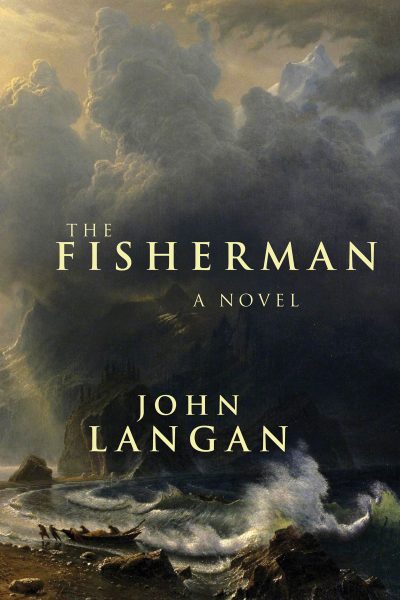| John Lagan's The Fisherman Sometimes a novel sneaks up on you. The Fisherman by John Langan has just done that to me. Advance reviews had suggested that I would probably like it. Definitely worth a try. The Kindle edition was reasonably priced, I thought. Heck, hit the BUY NOW button. I am glad I did. Yes, it is a horror novel of sorts. Just as much, I’d say, it is a regional novel. In the best sense. Writers as diverse as Gabriel Garcia-Marquez, Stephen King, John Irving, and William Faulkner write regional novels. And like Langan in this novel, they too dip into horror from time to time. |
The region here is the Catskill Mountains in New York, particularly the area around the Ashokan Reservoir. The framing story is set in the late 1900s but is narrated from a point of view even closer to now. The long flashback, which takes up probably half the book, is set primarily at the time of construction of the Ashokan Reservoir in the second decade of the last century, but voices heard telling that tale take it further back in time as well as forward. (One of the joys of the books is how well Langan controls those voices and the information they provide so that it is complicated but easy to follow and makes artistic sense.)
Need I say it is also a novel about fishing and fishermen? “Ashokan” apparently comes from and Indian word meaning “place of fish.” The details of fishing will enchant the fisherman among you but will not bore anyone with little interest in the sport. I think some of Langan’s best writing is in the descriptions of fishing. A small word of warning here: don’t make too quick an assumption about who the title refers to.
It is also very much a novel about sorrow and loss.
I tend to like novels with other novels embedded within. After all, as a few of you may know, I used that same format myself once upon a time. I also tend to like novels that use a dying fall at the end, or the anticlimax if you will. For me, the long endings of The Lord of the Rings, both book and movie, are wonderful. Sometimes I like the sudden jump scare at the end, as, say, at the end of Brian De Palma’s movie of Stephen King’s Carrie. (Let no good deed go unpunished: that sort of ending has become de rigueur for the standard variety of horror filmmakers these days. Let’s give a final jolt that has nothing to do with context or meaning.) Here Langan uses both the dying fall and the surprise, I think brilliantly.
Surprise. Yes, the book will surprise you. Wonderfully, you often anticipate the surprise but then find that it is not exactly like you suspected. Langan also plants portents that you might not even recognize as portents along the way, or if you do you may not guess exactly what they portend. He even tells you how the story will end in his opening paragraphs.
If I had to put a snappy tag on my thoughts re The Fisherman, that might be “Herman Melville Meets H. P. Lovecraft.” If you don’t care for either of those earlier writers, don’t let that put you off. Langan does his own great thing with the material and the influences. However, if you are like me, you will get a great kick out of recognizing the influences of both and delighting in how Langan works with them.
It is a leisurely book in some respects. I mean that as praise. At times I found myself putting it down so that I could relish the moment and the mood. In his afterword, Langan mentions that he had some difficulty finding a publisher. Some horror publishers found it too literary. Some literary publishers found too much horror in it. This is, in my opinion, reflective of the state of publishing instead of Langa.

 RSS Feed
RSS Feed